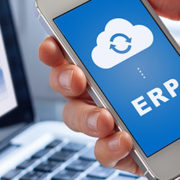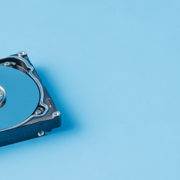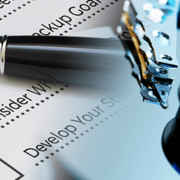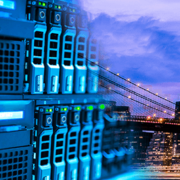The 6 biggest benefits you’ll get from an ERP system
At some point, you’re going to want to look into ways to make your business more effective and streamline your business process. You’re going to want it to be cost-effective, and able to withstand any future changes to your business. You also want it to meet the specific needs of your business, to focus on your strengths, and identify and remedy any weaknesses.
That’s where an enterprise resource planning (ERP) system comes into play. ERP management can integrate all of the different aspects of your business including purchasing, planning, inventory, sales, marketing, budgets, and human resources.
Before installing such a system, you’ll want to ask yourself how the benefits of ERP can best serve your business needs.
1. A better view of your business process
Many companies suffer from not being able to look at all of the different aspects of their business, how they’re operating together, and then determining if what is happening is working in the company’s best interest. Decisions become more difficult. Efficiency drops, as do profits.
By centralizing business data–sales, inventory, resource allocation, and others–you can improve the “big picture” of your business to determine where bottlenecks or other problems may lie. You can uncover what conditions might be leading to customer dissatisfaction.
Armed with this information, you can determine which departments might be able to enhance their performance, reduce repetition, or improve their supply chain. Streamlining your business process will lead to a more efficient and productive business.
For mobility advantages with a centralized system for accessing information and business applications, your employees have an easier time conducting business in the field. Orders are placed more efficiently, inventory information is more quickly available, service calls are streamlined, and more.
2. Improved cooperation
While a certain amount of autonomy among the various departments within your business makes good sense, sometimes it can block communication. By centralizing how data is collected and shared between departments, you can reduce wasteful, repetitive procedures and ensure that everybody is working with the same up-to-date information.
When you add cloud computing with shared resources, you can also step up your company’s collaboration game. Projects get completed more quickly and employees have immediate access to information, no matter where they are physically located, as long as they have a secure Internet connection.
3. Enhanced inventory control
ERP systems are particularly useful when it comes to keeping track of inventory, orders, supply chains, and services. Every item and resource can be followed from start to finish. This controls situations in which orders get lost or shipped incorrectly, or when manufacturing gets held up from lack of supply or people-power.
Nothing gets lost in the shuffle. This saves you time, money, and aggravation.
4. Greater customer service
With an effective enterprise resource planning program in place, customers should be able to place orders more easily and even track the order’s progress themselves. They will know who to contact and how, should issues arise or they wish to amend their order.
ERP can be used to oversee customer interaction, information, and history. This means sales teams are better equipped to interact with customers–even preparing solutions for customers before the customer is even aware they’re needed.
5. Stronger security and regulatory compliance
Some businesses turn issues such as security and regulatory compliance into a “fix it when it becomes a problem” sort of scenario. This can end up being expensive and can lead to unwanted downtime. It would be better, perhaps, to have these issues addressed and handled at the very start. That’s something an ERP system can do.
Network security protocols, firewalls, encryption, and other IT issues related to keeping your data safe and your communications protected can be set up when creating your ERP system. If regulatory compliance is prioritized at the beginning, you save yourself headaches later.
6. Scalability benefits
ERP software systems are not a one-size-fits-all sort of thing. Rather, it can be customized to fit the unique needs of your business and, better yet, adapted to meet the changing needs of your business over time. There is no risk of starting over again in a few years after your business grows or changes focus.
Users of your ERP system can be added or removed as your staff changes. Inventory and services can be adjusted to fit the evolving nature of your business. In short, the scalability and flexibility of an ERP system can serve your needs for the long term, while delivering savings by reducing installation costs of a new system every few years.
Implementing an ERP system
There are many reasons to implement an ERP system. Most come down to improving the efficiency of your business process, the productivity of your employees, the effectiveness of your customer service, data and communication security, and adhering to a managed budget.
It’s important to do your research on ERP system providers and insist on one who treats you as a partner, understands your business’s unique needs, and feels invested in your success. At Appsolute, we are keenly interested in how we can help best express your business through technology. Contact us today if you’d like to learn more about how we can do that.






